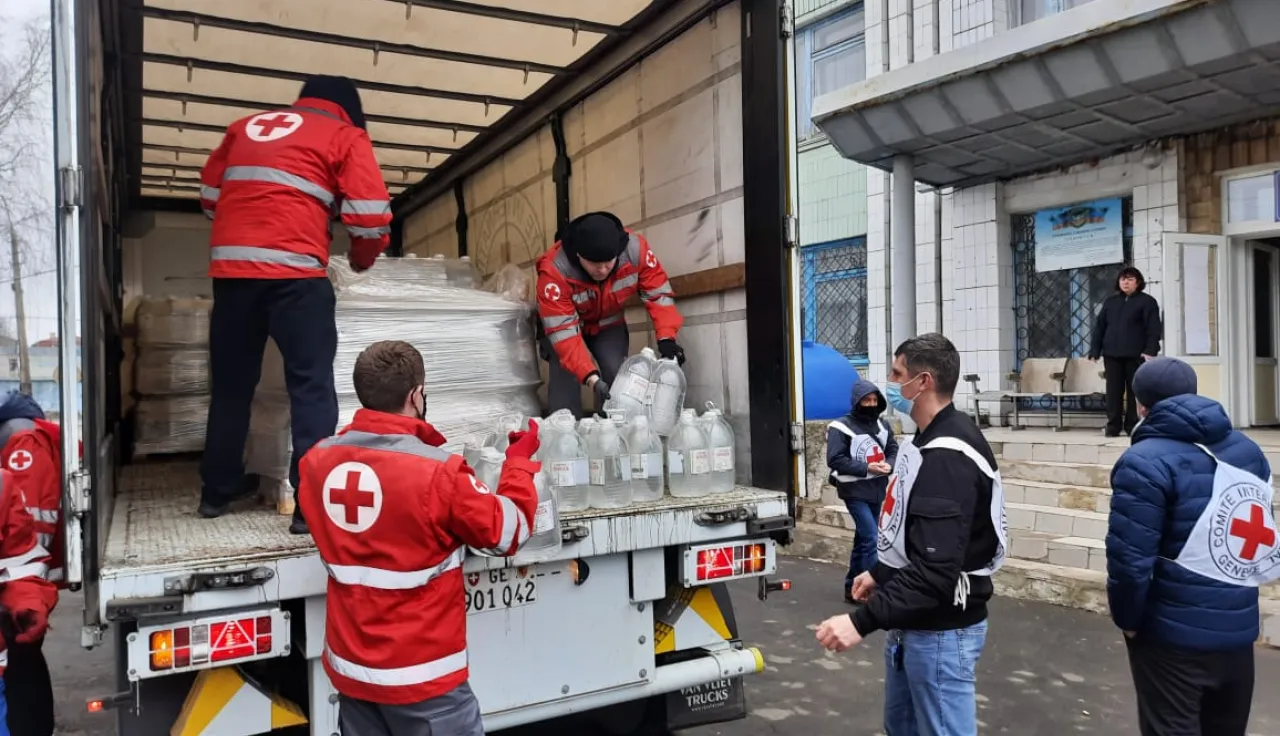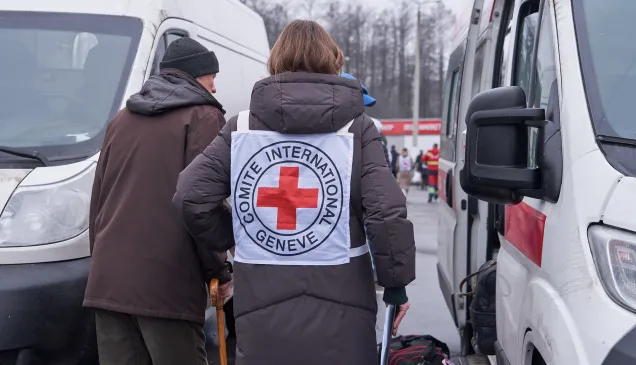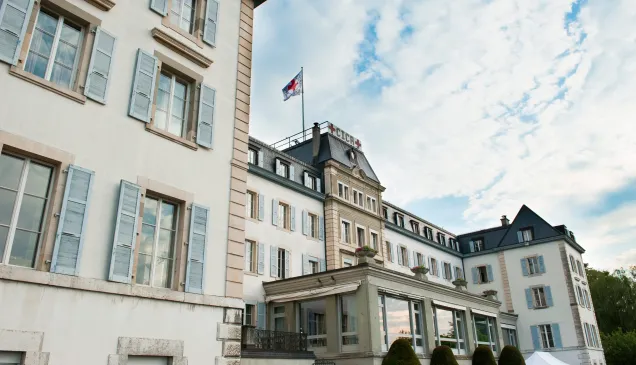In just two weeks, homes have been reduced to rubble. Families are huddled underground for hours on end to seek refuge from fighting. Hundreds of thousands of people have no food, no water, no heat, no electricity and no medical care. Two million people are reported to have left their homes into neighbouring countries, while countless more are trapped and desperate for a safe escape.
The International Committee of the Red Cross (ICRC) has been working in Ukraine since 2014 and continues to help those living through the armed conflict.
“Teams from the ICRC have been delivering medical supplies, food, water and hygiene material in Kyiv, Mariupol, Odessa, Donetsk, Luhansk, and many other places. But it’s clear much more must be done to assist the skyrocketing number of people in need. That’s why we are mobilizing more staff and supplies to Ukraine and neighbouring countries, to help people suffering from the effects of this armed conflict,” said Martin Schüepp, ICRC’s regional director for Europe and Central Asia.
Additional ICRC staff arrived in Ukraine this week to significantly scale up our work, including medical staff, weapons contamination specialists and other emergency team members. We are also sending teams to Hungary, Moldova, Poland Romania and Russia to support our regional response and coordinate with our partners from the International Red Cross and Red Crescent Movement. The ICRC is also setting up logistical hubs in neighbouring countries to more efficiently send relief items into Ukraine, with local supply chains broken down.
In addition to stepping up our operational response on the ground, we continue a sustained, bilateral and confidential dialogue with all sides on the conduct of hostilities as well as on the protection of the civilian population, reminding them of their obligations under international humanitarian law.
From 22 February to 8 March, the ICRC in partnership with the Ukraine Red Cross Society (URCS), delivered:
Medical
- Medical items to the Regional Hospital of Intensive Care and children’s hospital in Mariupol.
- Medical assistance in several displaced people centres in Mariupol.
- Surgical materials to three main hospitals in Kyiv as a joint ICRC/URCS effort with MSF.
- 2.5 tons of insulin in Odessa, enough for 6,500 people for six months; insulin for 9,000 people in Dnipro for three months.
- Psychosocial support to children, adults in basements and shelters in Kyiv, Severodonetsk and Slovyansk.
- More than 160 first-aid kits for use by the URCS and other authorities.
Food, water, and relief items
- Food, water and hygiene items to 4,000 people in shelters in Mariupol.
- 500 food parcels and hygiene kits, along with drugs and shelter material, in Gorlovka.
- 7,000 litres of potable water to the municipality of Donetsk.
- Fuel to URCS so it could donate 750 aid parcels in Kurenivka, Obolon and Podil.
- Food items to residents in Schastia, Triokhizbenka, Novoaidar.
- 38,000 litres of bottled water for residents and health facilities around Donetsk.
- 2.5 tons of water and 50 tarpaulins to officials in Kirovsk for distribution.
- Food and shelter materials to nine villages around Donetsk to internally displaced people.
- Tools for water infrastructure repair teams in Donetsk.
- Safe water, fuel and tarpaulins for residents in Donetskiy.
- Assistance to LuhanskGas in Vrubivka to repair gas pipelines.
- Cash assistance of nearly 28,000 CHF ($30,000) to the URCS in Kramatorsk.
- Blankets, Mattresses and jerrycans to 3 shelters in Severodonetsk.
- $66,000 in cash assistance to the Red Cross branch in Luhansk
- Blankets, pillows and mats for internally displaced people in the region around Novoazovskyi
- 200 tarpaulins and plastic sheeting in Luhansk
- 4,900 kilograms of potassium permanganate used for water purification donated to the Vodadonbassa Pokrovsk.
- Assistance items for 7,000 people donated to an aid organization in Sviatohyrsk.
Weapon contamination work
- A newly deployed ICRC weapons contamination team will help communities clear unexploded ordnance.
- A donation to URCS of 500 signs to mark out hazardous, UXO-contaminated areas.
- Multiple emergency “Risk Awareness and Safe Behavior” briefings for Red Cross volunteers and others. RASB materials and printed materials with safety materials were supplied.
- Joint ICRC/URCS Risk Awareness and Safe Behavior campaign being planned.
Central Tracing Agency
- The Central Tracing Agency is scaling up and calling on the parties to the armed conflict to provide the required information on all captured persons, either alive or dead. Once lines of communication are established, the CTA receives and transmits this information between parties and the families, about enemies who have been captured, wounded, or who have died.
- The Ukrainian Red Cross and other national societies are working on reestablishing family links to enable families to receive information about their loved ones in Ukraine.
- Entities involved in the dignified management of the dead are being supported and assistance delivered.
For more information, please contact:
Crystal Wells (English), +41 77 963 75 74, cwells@icrc.org
Jason Straziuso (English, French), +41 79 949 35 12, jstraziuso@icrc.org
Christoph Hanger (English, French, German), +41 79 731 04 03, changer@icrc.org




